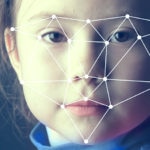Memory of a goldfish? No problem if the password is you
Tablets, mobiles, the cloud….all the technologies we assiduously use today have improved our lives enormously. So much so, that some people are starting to question whether this is affecting our mental abilities, as we now rely on our devices to take care of things that 20 years ago depended exclusively on our brain power.

Luckily, this is a case of the problem also being the solution: Technology is here to rescue us from this nightmare. We are not talking about the password manager available on browsers or digital key rings that require an additional act of faith as users no longer manage their passwords themselves. But of biometrics. Where people are their own passwords.
What is biometrics?
Biometrics is the study for the unique recognition of individuals based on personal characteristics, whether physical or behavioral.
We have grown more than used to watching movies where biometrics technologies are used. Genre ‘must watch’ films like Minority Report, and works like The Incredibles, The Fifth Element, The Island, Back to the Future II and Judge Dredd, have taught us about the advantages of using biometrics technologies.
But how much is real and how much is pure fantasy?
- Windows: Windows Hello uses images of the face, iris or fingerprints to unblock devices. This technology will be incorporated into the new Lumia 950 and Lumia 950 XL. These will be equipped with two cameras, an infra-red camera on the front of the device and another designed specifically to photograph the eyes. These two components will work together to provide almost instantaneous recognition to unblock the device much more quickly compared to the time required to enter a PIN code.
- Fujitsu: The new mobile telephone Fujitsu Arrows NX F-04G, includes an app called the Iris Passport that provides authentication using an iris scanner.
- Apple: The now familiar Touch ID is a fingerprint identity sensor that allows access to some of the brand’s mobile devices. However, it is going a step further and said to be working on facial recognition.
- Samsung: Has also included a finger print reader on the Galaxy S5 to unblock the smartphone, access private mode and make payments through PayPal.
- Facebook: The social network uses face recognition technology in its Tag Suggest tool to speed up the process of tagging friends and acquaintances in the photos that we publish on the website. This technology automatically identifies faces in photos that are uploaded by comparing them to previous photos tagged by users.
These are not the only uses of biometrics today but they are probably the most well known, and there is still a lot left to come. For instance, engineers from Toronto University have developed a security system that identifies users by accurately measuring the rhythm of their heart beat. New technologies are appearing every day and some of these go on to play an integral part in our lives. What will be next? Thankfully, we can count on Hollywood to give us a clue.